2025 Presentations & Instructor Bios
The KU Jayhawk Tradition
Instructor: Brian Carpenter
The Jayhawk became the official mascot of KU in 1958. Along with other veteran Jayhawks, Brian will explain the symbolism of the Jayhawk, the “job” of being the mascots, and how they approach the role of KU’s favorite ambassadors.
Big Jay and Baby Jay appear at all major KU sporting events, university ceremonies, and (increasingly!) in national TV commercials. They receive countless appearance requests for a wide variety of private events including many weddings. The small team of performers who wear the iconic beaks & boots approach their roles with reverence and spend considerable time training, traveling, and performing as the two Jayhawk “best friends.”
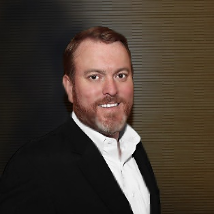
Brian Carpenter is the Jayhawk mascot’s coach and mentor and a former Jayhawk performer. Brian is responsible for Jayhawk mascot training, academic and physical fitness, scheduling, and recruiting. Brian’s mascot journey began at Blue Valley Northwest High School, continued at KU, and eventually to the backup role as Sluggerrr for the KC Royals.
Museums and Cultural Restitution: Toward a New Approach
Instructor: Dr. Ryan Clasby
In recent years, museums and other collecting institutions have attempted to grapple with their colonial legacies through restitution efforts aimed at fixing past wrongs and minimizing current harms to the source communities, often Indigenous populations, from which their collections stem. Indeed, many museums are now embracing the repatriation of ancestors and material culture as an import part of cultural restitution efforts alongside collaborative endeavors aimed at increasing the voices of Indigenous peoples across the globe. In this lecture, Dr. Clasby provides an overview of the cultural restitution debate as it relates to the history of the subject, particularly focusing on key global milestones in the 1970 UNESCO Agreement and NAGPRA. This presentation will also detail the complexities of housing global collections, changing approaches and attitudes towards cultural restitution, and the challenges that museums still face in shedding their colonial legacies.
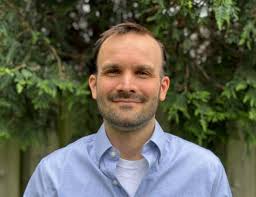 Dr. Ryan Clasby is the Curator for Global Indigenous Art and Lifeways at the Spencer Museum of Art at the University of Kansas. He received his BA from the University of Illinois at Urbana-Champaign in Anthropology and his MPhil and PhD from Yale University in Anthropology. He has previously taught at institutions such as Skidmore College, Central Washington University, and Saint Louis University. He has also received fellowships from Dumbarton Oaks Research Library and Collection in Washington DC and the American Council for Learned Societies (ACLS). Dr. Clasby's research has primarily centered on the art and archaeology of the Andes and Amazonia as it relates to both ancient and contemporary populations. From an archaeological perspective, Dr. Clasby has conducted fieldwork and collections-based investigations in the northeastern Peruvian Andes since 2007. His research aims to not only overturn misconceptions that the Amazon was incapable of supporting large societies and complex cultural developments, but to also examine the nature of early exchange networks between Andean and Amazonian populations and the impact that these relationships had on long term cultural and sociopolitical developments within western South America. Parallel to this archaeological research, Dr. Clasby has long had an interest in museum studies as it relates to questions regarding the importance of cultural restitution, community-collaborative exhibit design, and the preservation of academic legacy collections. Indeed, while a graduate student at Yale, Dr. Clasby assisted in the inventory of the Hiram Bingham Machu Picchu Collection. This work would eventually lead him to the University of Illinois where he worked as a Postdoctoral researcher assisting the NAGPRA (Native American Graves Protection and Repatriation Act) Office with the cultural restitution of Native American ancestors and funerary offerings. He continues to engage in his present position at the University of Kansas as it relates to both NAGPRA and international repatriation. From the standpoint of museums and exhibit design, Dr. Clasby’s work pursues community-collaborative approaches that not only take into account traditional academic research from specialists, but which also incorporate diverse stakeholder community viewpoints at each stage of the design process from its initial conception to post-installation programming, while also aiding collections accessibility. . Dr. Clasby is currently in the planning stages of developing an exhibit at the Spencer Museum of Art at the University of Kansas on the art and lifeways of contemporary Amazonian peoples that will focus on cultural resiliency as well as the way in which contemporary issues are addressed through art. He is also working with colleagues to develop standards and protocols for pressing issues in museums as it relates to the long-term preservation of legacy research collections and international restitution and repatriation. Dr. Clasby’s work has been published by Latin American Antiquity, Oxford University Press, Dumbarton Oaks Research Library, and Yale University Publications in Anthropology. He also co-edited (with Jason Nesbitt) an edited volume published by the University Press of Florida, The Archaeology of the Upper Amazon: Complexity and Interaction in the Andean Tropical Forest.
Dr. Ryan Clasby is the Curator for Global Indigenous Art and Lifeways at the Spencer Museum of Art at the University of Kansas. He received his BA from the University of Illinois at Urbana-Champaign in Anthropology and his MPhil and PhD from Yale University in Anthropology. He has previously taught at institutions such as Skidmore College, Central Washington University, and Saint Louis University. He has also received fellowships from Dumbarton Oaks Research Library and Collection in Washington DC and the American Council for Learned Societies (ACLS). Dr. Clasby's research has primarily centered on the art and archaeology of the Andes and Amazonia as it relates to both ancient and contemporary populations. From an archaeological perspective, Dr. Clasby has conducted fieldwork and collections-based investigations in the northeastern Peruvian Andes since 2007. His research aims to not only overturn misconceptions that the Amazon was incapable of supporting large societies and complex cultural developments, but to also examine the nature of early exchange networks between Andean and Amazonian populations and the impact that these relationships had on long term cultural and sociopolitical developments within western South America. Parallel to this archaeological research, Dr. Clasby has long had an interest in museum studies as it relates to questions regarding the importance of cultural restitution, community-collaborative exhibit design, and the preservation of academic legacy collections. Indeed, while a graduate student at Yale, Dr. Clasby assisted in the inventory of the Hiram Bingham Machu Picchu Collection. This work would eventually lead him to the University of Illinois where he worked as a Postdoctoral researcher assisting the NAGPRA (Native American Graves Protection and Repatriation Act) Office with the cultural restitution of Native American ancestors and funerary offerings. He continues to engage in his present position at the University of Kansas as it relates to both NAGPRA and international repatriation. From the standpoint of museums and exhibit design, Dr. Clasby’s work pursues community-collaborative approaches that not only take into account traditional academic research from specialists, but which also incorporate diverse stakeholder community viewpoints at each stage of the design process from its initial conception to post-installation programming, while also aiding collections accessibility. . Dr. Clasby is currently in the planning stages of developing an exhibit at the Spencer Museum of Art at the University of Kansas on the art and lifeways of contemporary Amazonian peoples that will focus on cultural resiliency as well as the way in which contemporary issues are addressed through art. He is also working with colleagues to develop standards and protocols for pressing issues in museums as it relates to the long-term preservation of legacy research collections and international restitution and repatriation. Dr. Clasby’s work has been published by Latin American Antiquity, Oxford University Press, Dumbarton Oaks Research Library, and Yale University Publications in Anthropology. He also co-edited (with Jason Nesbitt) an edited volume published by the University Press of Florida, The Archaeology of the Upper Amazon: Complexity and Interaction in the Andean Tropical Forest.
Green Vehicle Solutions: Looking Towards the Future
Instructor: Chris Depcik
Dr. Depcik will explore the evolving landscape of sustainable transportation, covering internal combustion engines, electric vehicles, hybrids, hydrogen, biofuels, and eFuels. The presentation will highlight their technological advancements, environmental impact, and potential role in the future of mobility. Dr. Depcik’s laboratory conducts research revolving around a sustainable approach to energy and the transportation infrastructure. This includes analysis of electric vehicles, biofuels, combustion, and energy recovery potential.
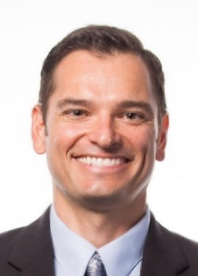
Chris Depcik is an American Society of Mechanical Engineers Fellow and Professor in the Department of Mechanical Engineering. In addition, he has a Courtesy Appointment in the Department of Aerospace Engineering. Prior to joining KU, he worked at the University of Michigan as a post-doctoral research fellow and lecturer. He has published over 120 refereed articles and is in the World’s Top 2% of Scientists. Dr. Depcik has received numerous departmental, school, university, national, and international awards for his service, research, and teaching efforts. Dr. Depcik is an exceptional communicator as illustrated by
The Role of the Landscape at KU
Instructor: Joe Fearn
Everyone that comes to KU, regardless of capacity, interacts with the landscape. Some actively and some passively. No other campus component has so much potential to benefit the community and the university. But, what should the landscape provide? And how? These questions and more will be addressed. Hopefully, you will see the KU campus landscape in a new light.
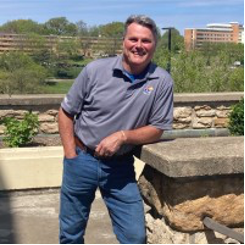 Joe Fearn is the Landscape Manager at the University of Kansas. Joe is a seasoned green industry professional experienced in commercial grounds management and landscape maintenance. Specialties include progressive landscape and garden design, environmentally friendly landscape maintenance and management.
Joe Fearn is the Landscape Manager at the University of Kansas. Joe is a seasoned green industry professional experienced in commercial grounds management and landscape maintenance. Specialties include progressive landscape and garden design, environmentally friendly landscape maintenance and management.
The Secrets about Nature that Hollywood Doesn't Want you to Know
Instructor: Richard Glor
Pop culture often misrepresents nature, which ruins movies and other media for naturalists. In this talk you will learn about some of the most common ways that pop culture wrecks nature.
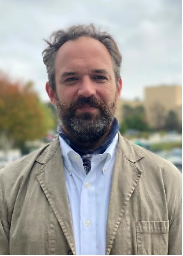
Richard Glor is an Associate Professor/Associate Curator at the Natural History Museum at the KU. He joined the KU Herpetology Department in the Fall of 2013. He studies the evolution of biological diversity, focusing on adaptive radiation in Anolis lizards and other reptiles. Dr. Glor received his Bachelor of Science from Cornell University and his Ph.D. in Species Diversification from Washington University.
A Lecture/Demonstration on Period Instruments and Baroque Music
Instructors: Dr. Paul Laird and Joy Laird
This class will be a lecture/demonstration on playing period instruments and the performance of music from the Baroque era. We will use live performances and some recordings to show the special qualities of Baroque instruments and give the class an idea what music sounded like in the seventeenth and eighteenth centuries.
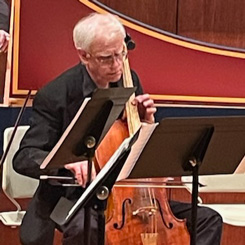 Dr. Paul Laird, Professor Emeritus of Musicology, has taught at KU since 1994 after previous experience at Pennsylvania State University, Binghamton University and the University of Denver. He teaches courses on musical theater, Baroque music, American music, and music of the 20th century, in addition to more general music history classes. He himself is an active Baroque cellist. He also has offered many classes through the Osher Institute for Lifelong Learning since its inception at KU. In 2002, he won a University of Kansas W.T. Kemper Fellowship for Teaching Excellence. In 2021, he won the University of Kansas Chancellor’s Club Career Teaching Award.
Dr. Paul Laird, Professor Emeritus of Musicology, has taught at KU since 1994 after previous experience at Pennsylvania State University, Binghamton University and the University of Denver. He teaches courses on musical theater, Baroque music, American music, and music of the 20th century, in addition to more general music history classes. He himself is an active Baroque cellist. He also has offered many classes through the Osher Institute for Lifelong Learning since its inception at KU. In 2002, he won a University of Kansas W.T. Kemper Fellowship for Teaching Excellence. In 2021, he won the University of Kansas Chancellor’s Club Career Teaching Award.
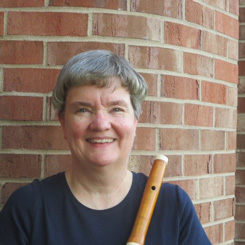
Joy Laird holds an MM in Flute Performance from Pennsylvania State University and has studied Baroque flute with Stephen Preston in London and numerous master classes in North Carolina. She plays in the Lawrence City Band and Lawrence Community Orchestra and as a performer on period instruments she has played with the Spencer Consort, Kansas City Baroque Consortium, and Sunflower Baroque, among other ensembles. She plays flute, piccolo, Baroque flute, soprano recorder, and alto recorder and has a private teaching studio in Lawrence.
When You Catch a Cliché...
Instructor: Lisa McLendon
The word cliché usually implies sometimes stale, tired or overdone. While that is often true, cliches have a useful function at times. This session will discuss what cliches are and the origins of common cliches, as well as what “eggcorns” and “snowclones” are and how these linguistic phenomena are frequently tied to cliches.
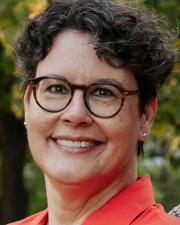 Lisa McLendon, William Allen White Professor of Journalism and Mass Communications, joined KU in 2012. She launched her journalism career on the copy desk at the Denton (Texas) Record-Chronicle after earning a doctorate in Slavic Linguistics from the University of Texas. Prior to joining the University, she spent seven years as the deputy news desk chief at the Wichita Eagle. She has taught news editing at the University of North Texas, Friends University in Wichita, and Wichita State University. Prof. McLendon is a member of the American Copy Editors Society and is the author of “The Perfect English Grammar Workbook,” published in 2017.
Lisa McLendon, William Allen White Professor of Journalism and Mass Communications, joined KU in 2012. She launched her journalism career on the copy desk at the Denton (Texas) Record-Chronicle after earning a doctorate in Slavic Linguistics from the University of Texas. Prior to joining the University, she spent seven years as the deputy news desk chief at the Wichita Eagle. She has taught news editing at the University of North Texas, Friends University in Wichita, and Wichita State University. Prof. McLendon is a member of the American Copy Editors Society and is the author of “The Perfect English Grammar Workbook,” published in 2017.
Internet Fraud: Fighting Back Against Cybercrime
Instructor: Samatha Meisenhneimer
This will be an informative session where we dive into the digital world and arm ourselves with tools to combat internet fraud. From phishing and impersonation to identity theft and tech support scams. I'll cover common tactics used by cybercriminals and go over how to spot and identify them. Join me to become a savvy defender in the fight against online scams!
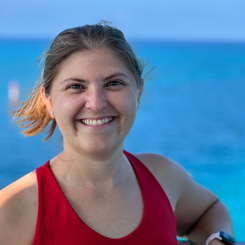 Samatha Meisenhneimer serves as a Security Engineer in the IT Security Office at The University of Kansas, specializing in email security. A proud Lawrence native, she has a Bachelor’s Degree in IT from Bellevue University and is currently pursuing her master's degree at KU in IT focusing on Cybersecurity. With a passion for protecting our digital world, Samantha is dedicated to staying ahead of cyber threats and ensuring a secure online environment for everyone.
Samatha Meisenhneimer serves as a Security Engineer in the IT Security Office at The University of Kansas, specializing in email security. A proud Lawrence native, she has a Bachelor’s Degree in IT from Bellevue University and is currently pursuing her master's degree at KU in IT focusing on Cybersecurity. With a passion for protecting our digital world, Samantha is dedicated to staying ahead of cyber threats and ensuring a secure online environment for everyone.
A Republic If You Can Afford It: How Much Does It Cost to Administer Elections?
Instructor: Zach Mohr
Elections have been conducted in the United States long before the country was even founded; therefore, it comes as a surprise to many that there is little data regarding the costs to complete the basic task of counting ballots. This class will explore why it is so difficult to quantify the cost of election administration and will learn more about what goes into modern election administration. The class will also discuss data collected in the presenter’s book that shows the varying costs of elections across the country and over time, and whether election spending matters in terms of trust and confidence in elections.
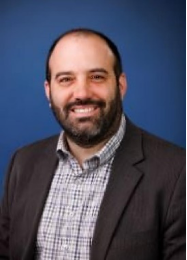 Zach Mohr, Associate Professor in the School of Public Affairs and Administration at the University of Kansas, studies and teaches public budgeting, accounting, and financial management. Prior to joining KU, Zach was a city administrator in the state of Kansas. He has produced over thirty peer-reviewed articles and books, including Cost Accounting in Government: Theory and Applications. He is currently working on finishing a book on the cost of election administration at the local level He has provided testimony to the Congressional Committee on House Administration and has actively participated in the Election Science Reform and Administration conference. He is also a leader in behavioral public budgeting and financial management.
Zach Mohr, Associate Professor in the School of Public Affairs and Administration at the University of Kansas, studies and teaches public budgeting, accounting, and financial management. Prior to joining KU, Zach was a city administrator in the state of Kansas. He has produced over thirty peer-reviewed articles and books, including Cost Accounting in Government: Theory and Applications. He is currently working on finishing a book on the cost of election administration at the local level He has provided testimony to the Congressional Committee on House Administration and has actively participated in the Election Science Reform and Administration conference. He is also a leader in behavioral public budgeting and financial management.
The Role of Debate in Politics, Government, Science, and Education
Instructor: Dr. Robert Rowland
Debate is often viewed as a form of verbal conflict or a mere game of verbal jousting. In fact, debate should play a crucial role in how we make decisions in politics, science, and all aspects of government. In this lecture, Robert Rowland will explain the basic components of informed debate, discuss how debate can play a critical role in making informed decisions in all human endeavors and is even more important for avoiding bad decisions. Rowland will also discuss the important role that debate can play in all levels of education. He also will reflect on his own experience as a debater and coach at KU and Baylor University as well as someone who has studied political debates for his entire career.
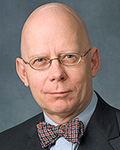 Dr. Robert Rowland, Professor in the Department of Communication Studies, teaches rhetoric and argumentation. He has won four university-wide awards for teaching, three college or university-wide awards for advising, and a national award for teaching from the National Communication Association. He has won several national awards for his research and has published four University Press of Kansas books, one of which won the Kohrs-Campbell Prize in rhetorical criticism. His most recent book, “The Rhetoric of Donald Trump,” was published in 2021. Dr. Rowland presented the keynote on rhetoric at the Reagan Centennial. As a KU student in 1976, he and his debate colleague won the National Debate Tournament.
Dr. Robert Rowland, Professor in the Department of Communication Studies, teaches rhetoric and argumentation. He has won four university-wide awards for teaching, three college or university-wide awards for advising, and a national award for teaching from the National Communication Association. He has won several national awards for his research and has published four University Press of Kansas books, one of which won the Kohrs-Campbell Prize in rhetorical criticism. His most recent book, “The Rhetoric of Donald Trump,” was published in 2021. Dr. Rowland presented the keynote on rhetoric at the Reagan Centennial. As a KU student in 1976, he and his debate colleague won the National Debate Tournament.
Sights and Sounds of KU, the Marching Jayhawks
Instructor: Sharon Toulouse
In this presentation you will learn about the role of the marching band and what it takes to get from day one of practice to game day.
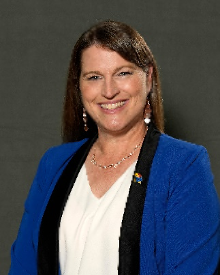 Sharon Toulouse, Director of Marching Bands, earned her Bachelors of Music Education in 1998 and her Master’s degree in Instrumental Wind Conducting in 2005 from KU. A US Army Reserve Veteran, Sharon played trumpet with the 312th Army Reserve Band in Lawrence, KS. During her Army career, she worked with The U.S. Army Training and Doctrine Command Band (TRADOC) at Fort Monroe, VA, and The United States Army Field Band at Fort Meade, MD. Upon her return to Lawrence, she rejoined the 312th Army Band, this time as their XO. She retired from the Army Reserves in September of 2023 as a Chief Warrant Officer 4. In her current role, her duties include leading the KU Marching Jayhawks, directing the KU Men's Basketball Band, overseeing all other athletic pep bands, and directing the KU University Band.
Sharon Toulouse, Director of Marching Bands, earned her Bachelors of Music Education in 1998 and her Master’s degree in Instrumental Wind Conducting in 2005 from KU. A US Army Reserve Veteran, Sharon played trumpet with the 312th Army Reserve Band in Lawrence, KS. During her Army career, she worked with The U.S. Army Training and Doctrine Command Band (TRADOC) at Fort Monroe, VA, and The United States Army Field Band at Fort Meade, MD. Upon her return to Lawrence, she rejoined the 312th Army Band, this time as their XO. She retired from the Army Reserves in September of 2023 as a Chief Warrant Officer 4. In her current role, her duties include leading the KU Marching Jayhawks, directing the KU Men's Basketball Band, overseeing all other athletic pep bands, and directing the KU University Band.
KU Mini College Tours
We offer three tours in addition to the presentation schedule. You must choose your tours at time of registration to secure your seat.

Murphy Hall Costume Shop (limited to 25)
We will tour the Theatre/Dance Department's costume shop and learn about the process of taking a costume from page to stage, using examples from our Spring 2025 production of "Pippin." Tour will be led by Gail Trottier, costume shop manager for all theatre/dance department productions.
Lied Center Backstage (limited to 50)
Come see what it takes to put on a show at the Lied Center. This tour will take you through the dressing rooms and behind the stage to see what all is involved from start to finish. Tour will be led by Lied Center staff